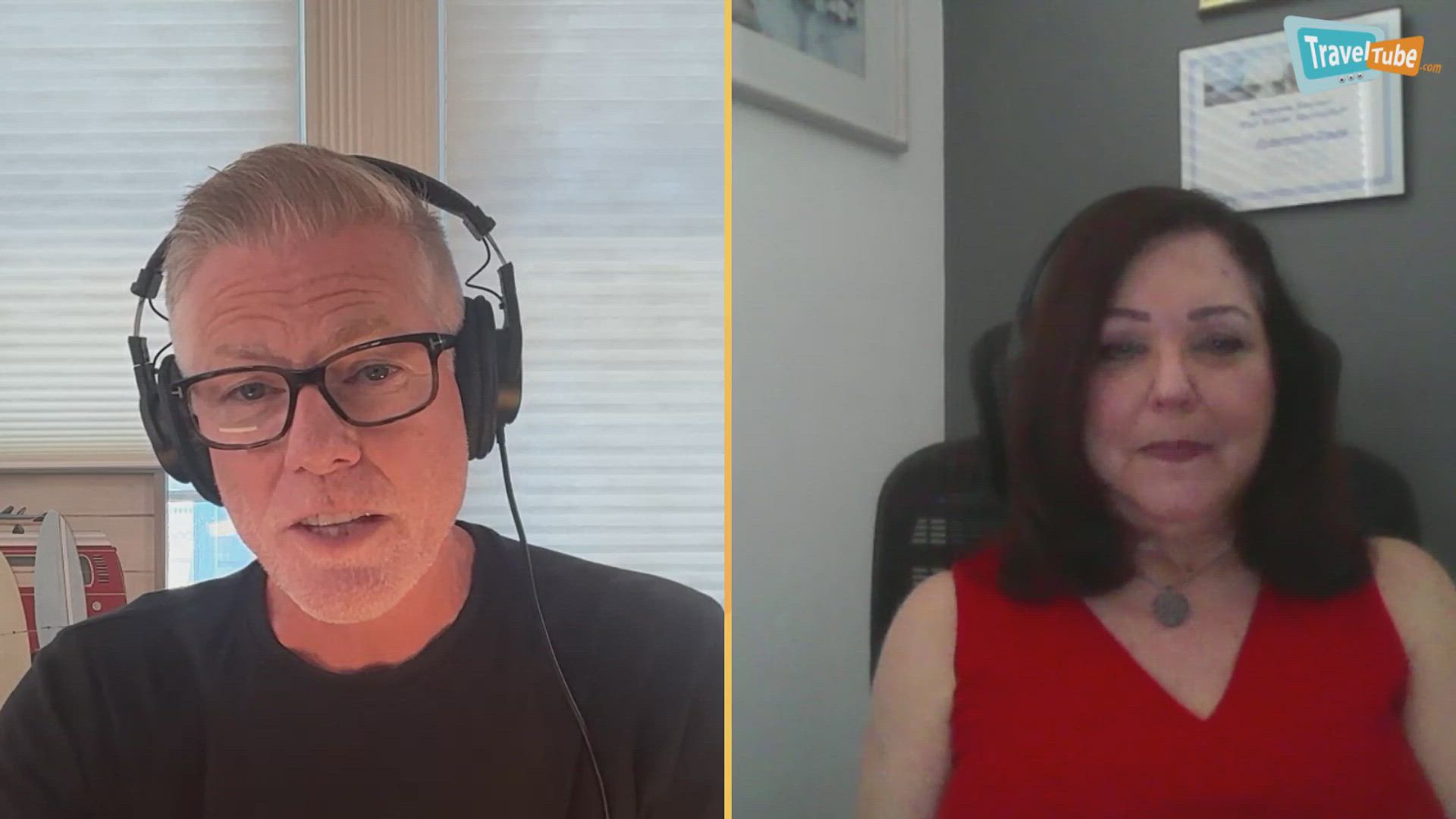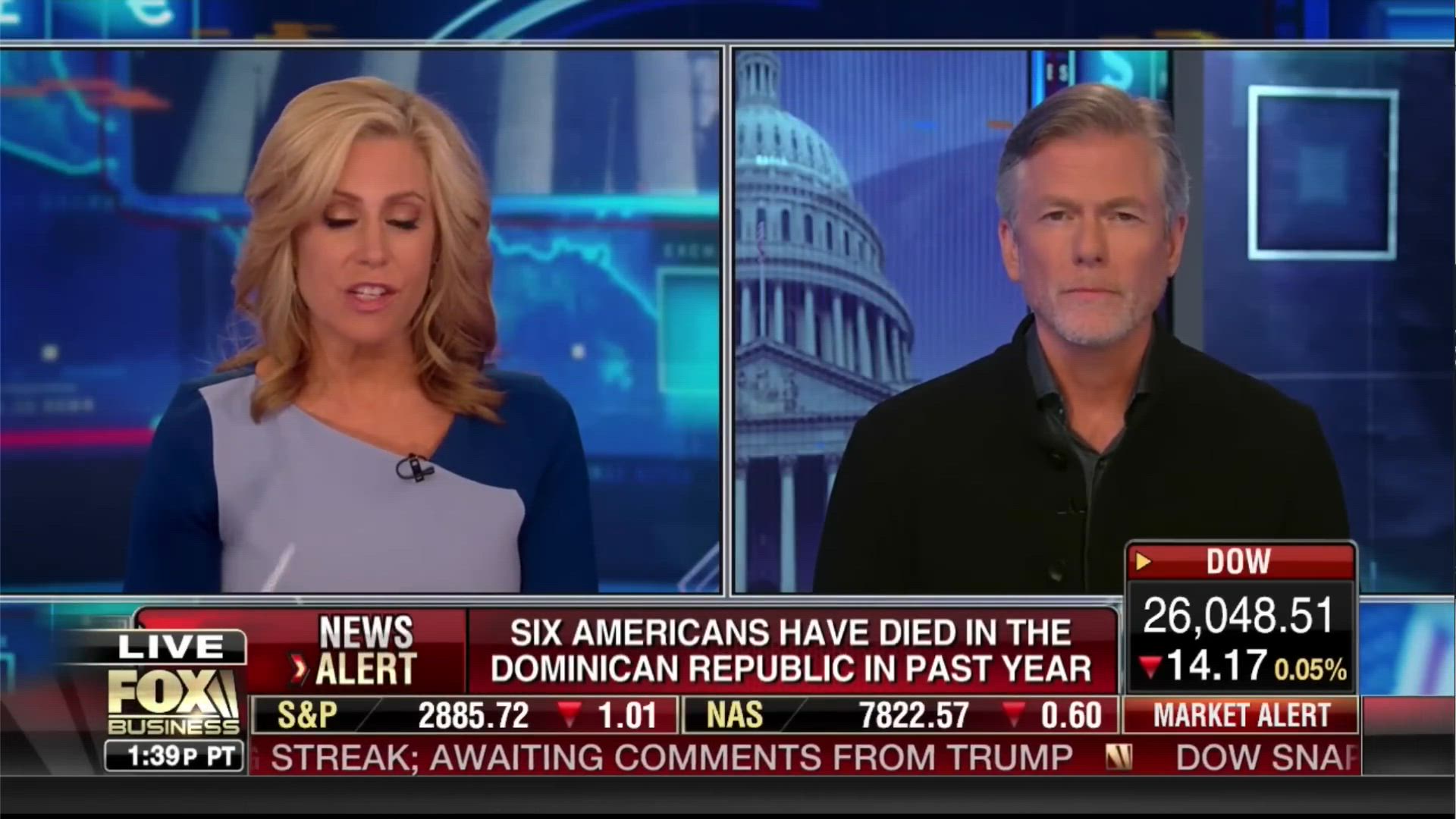Interview Transcript: AI and Airline Pricing
Interviewer: [Question about airline revenue management and pricing]
Mark Murphy: They've been doing revenue management for decades, which means if you've got 200 seats on a plane and you have 150 seats open, prices are going to be really cheap. They're going to bring the prices down to fill the plane. On the other hand, they're probably not going to do too much of that with the front of the plane, which is the business travelers who are willing to pay that top dollar for that luxury service and business or first class.
So this is not new. This is a way to actually improve the process and the cost structure in regards to revenue management—a process that's already in place. So it really comes down to just tools for the airline to use to figure that out.
As far as the previous comments from that individual that it's going to be only people that have the means and the wealth or whatever to travel, I couldn't disagree more. When you go online—let's say you go to Google Flights—Google Flights doesn't know who you are. Google Flights is just doing a search and they're going to return city pairs based on what you want to do, where you want to go, and when you want to go. And we'll show you all the options. It's competitive pricing. So there's still the competitive nature.
The biggest threat to the pricing on the airline industry is the secondary markets. And if you live in a secondary market, meaning you're basically taking connections to get where you're going—those drops in service to those markets or even mainstream markets is where you have less competition and where the dominant carrier can control the pricing. That is the biggest threat to pricing.
Interviewer: OK. I presume that people who were involved in this personalized pricing, they don't go on Google. They may call the airline something like that. But legislation has also been introduced, Mark, to stop AI personalized pricing or what has been called surveillance pricing. Is this a murky legal area?
Mark Murphy: So, I'm not a lawyer, so I would leave that for the legal folks. There's a lot to work out with AI. But what I would say is, if I call the airline, once again, I'm a leisure traveler. How many times am I flying a year? Two times, three times a year, maybe. As a leisure traveler, as a business traveler, it's different. I care about the rewards programs. I'm in the program. I'm going on typically booking on the airline website. So that's a little different, but I'm always booking last minute anyway, best available seat at that point in time in terms of pricing. So it could get a little murky there.
But for the leisure traveler that's going online to book, whether they're going to a third-party website like Expedia, they're going to Orbitz, to call a travel agent, whatever it is, or they're getting it through a tour operator like a vacation package where they'll package the resort with the airline and everything else—that isn't an issue.
So I think the panic around AI—you saw that MIT study come out, a lot of companies are talking about it—but at the end of the day, it's not doing, you know, it's not the miracle. And I think there's a lot of buzz about it for the stock price, not necessarily how it's going to work, you know, out front and really change the landscape.
Where it's going to bring value to, I think, a lot of travel suppliers is managing the operations side, managing the customer service, having chatbots, making sure that people, if they get their flight canceled, they're automatically rebooked on another flight. And that does happen today, but probably not as efficiently as it's going to be in the years to come with AI.
Interviewer: Yeah. And Mark, that MIT study you're talking about, some 95 percent of companies that use AI aren't making money on that right now. Obviously, that's going to have to change down the road. But let's get back to the travelers. Do you think there is a way or will be a way for travelers to find out if AI is being used to price his or her vacation, his or her seat?
Mark Murphy: What I would tell people right now is it probably is already being used by a lot of players to do that, because they're incorporating that into their revenue management models. So I would say the answer is yes.
And the question I would ask them is what's the difference between a clumpier revenue management model where they're pricing out at the highest rate the last available room or last available seat versus having it done dynamically so more efficiently. And what that means is the airlines can get very tactical down to a couple of dollars to squeeze out those last dollars. But that typically impacts business travelers because we're the ones that have to book. I have to go to San Francisco, and I need to leave tomorrow. I'm going to pay the max price. They used to call that Y fares. And I'm going to pay that top fare as that business traveler is a last-minute booker.
Leisure travelers are planning, they're booking further out. And that's when there's a lot of softness in the pricing. And it's not going to be an issue for 95 percent of the folks out there looking to travel.
Interviewer: Yes. And I presume people who do take advantage of the generous rewards programs, too. They're going to pay $50, $75 more to get the points with the airline or the hotel they stay at all the time. So, talk about the ways that AI could be beneficial for the travelers.
Mark Murphy: I think it's beneficial in terms of the service aspect of it. And it's also beneficial if you're a frequent traveler. There are tools you can use to try to max out your miles, try to find where's the best way for me to use these miles. Is it booking back on Delta or whatever? Or can I take those miles and use them in a different way? If I have a Chase Sapphire card, can I use that card to gain miles? And then where's it most efficient? And AI can help you use that to the best.
So I'll just give you a quick example. You use the Chase Sapphire card, and we have one. I use it myself. And then we go on. And if it's $1,000 for the airfare, but I can use what the equivalent dollar amount of the points is at $400, I'm using those points all day long. I think AI will streamline that for the average person.
Just like if you go to ChatGPT and you want to ask a question, it goes down and scours everything and gives you a summary today. And that's why you're seeing search with Google and other things kind of taking a backseat to AI results when you go out and ask the questions. And then you could hone those questions and really narrow it down like you can plan an itinerary but you probably want to travel agent to help you with that because a travel agent knows you personally—the AI tool does not unless you want to throw a bunch of your personal data in.
Interviewer: Who's better—the human or the AI?
Mark Murphy: I vote for the human.
Interviewer: Okay, good stuff Mark Murphy. Appreciate it, thanks a lot man.
Mark Murphy: You're welcome.






